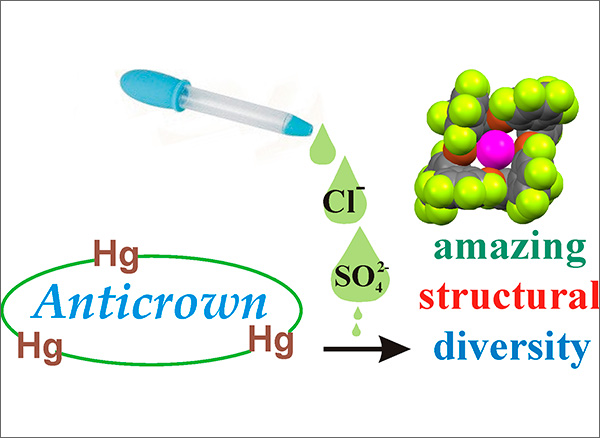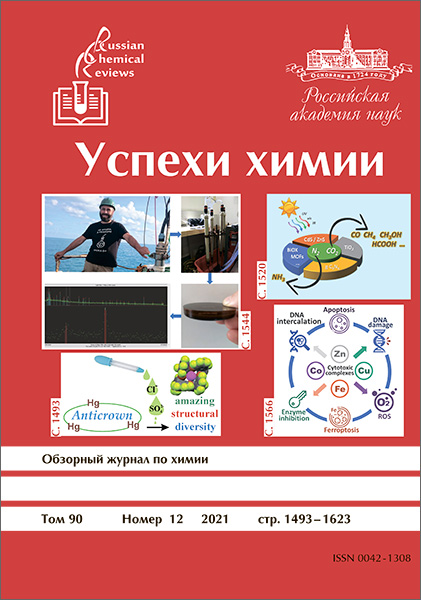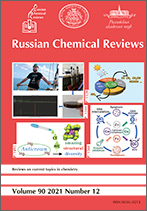|
This article is cited in 11 scientific papers (total in 11 papers)
Structural chemistry of host–guest molecular architectures based on mercury-containing macrocycles
F. M. Dolgushinab, I. L. Eremenkoab
a Kurnakov Institute of General and Inorganic Chemistry, Russian Academy of Sciences, Moscow
b A. N. Nesmeyanov Institute of Organoelement Compounds of the Russian Academy of Sciences, Moscow

Abstract:
Metallomacrocycles that include several metal ions with the Lewis acid properties are peculiar antipodes of crown ethers (referred to as “anticrowns” in the literature). Recently these architectures have been extensively investigated when searching for efficient and selective anion receptors. In this review, we analyze the data on the molecular and crystal structures of supramolecular complexes of mercury-containing macrocycles (hosts) with anions or neutral nucleophiles (guests). The emphasis is on the identification and systematization of the structure types of complexes in dependence of the guest molecule nature, as well as the macrocycle composition and structure. The factors affecting the selectivity of coordination and competitive ability of various electron donor moieties of guest molecules to binding to the macrocycle are considered. The data in the literature on the nonvalent host–guest and host–host interactions, which are responsible for the formation of molecular complexes and their supramolecular association in crystals, are analyzed. The formulated structural regularities of these coordination compounds with an unusual type of molecular architecture open ways to design directly promising molecular materials on their basis.
The bibliography includes 161 references.
Keywords:
mercury-containing macrocycles, anticrowns, host-guest complexes, anion receptors, Lewis acid, Lewis base, non-bonded interactions, crystal structure.
Received: 21.08.2020
Citation:
F. M. Dolgushin, I. L. Eremenko, “Structural chemistry of host–guest molecular architectures based on mercury-containing macrocycles”, Russian Chem. Reviews, 90:12 (2021), 1493–1519
Linking options:
https://www.mathnet.ru/eng/rcr4370https://doi.org/10.1070/RCR4998 https://www.mathnet.ru/eng/rcr/v90/i12/p1493
|


| Statistics & downloads: |
| Abstract page: | 105 |
|






 Contact us:
Contact us: Terms of Use
Terms of Use
 Registration to the website
Registration to the website Logotypes
Logotypes







 Citation in format
Citation in format 
